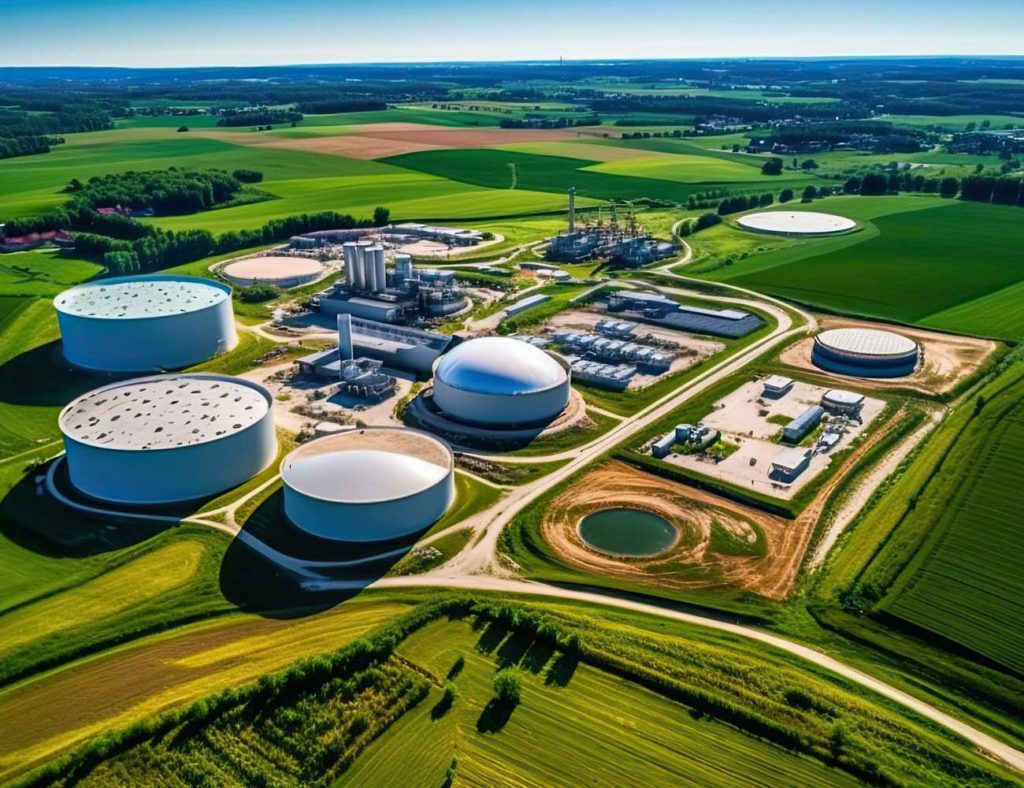HVO Diesel – An alternative fuel for a greener future
At Baudouin, we acknowledge the significance of adopting alternative fuels for a more environmentally friendly future. The majority of our diesel M-series engines are compatible with HVO.
Baudouin Engines: An approach to attain sustainability with HVO Diesel
Baudouin engines and HVO diesel create an ideal combination for sustainable power.
Our engines deliver reliable performance while meeting environmental regulations and minimizing emissions. By integrating HVO fuel, we help customers transition to cleaner energy without compromising efficiency or power output.
At Baudouin, we recognise the importance of alternative fuels for a greener future. Most of our M Series engines are compatible with Hydrotreated Vegetable Oil (HVO).
By choosing HVO as a fuel option, you can experience benefits such as:

Meeting Rigorous Emissions Standards
To ensure seamless HVO compatibility, we conduct extensive in-house testing. These efforts confirm that our engines maintain peak efficiency and reliability while reducing environmental impact.

Lower CO2 Emissions
The HVO production process lowers carbon emissions by up to 90% over the entire fuel lifecycle, according to REDII calculations. By switching to HVO, businesses actively contribute to global sustainability efforts.

Baudouin Engines: A Sustainable Force Across Diverse Applications
HVO compatibility with Baudouin engines reverberates across various sectors, reinforcing sustainability in each application.
How does Baudouin engines contribute to sustainability across different sectors?
The compatibility of HVO fuel with Baudouin engines is a step forward to achieving sustainability goals for various industries in diverse critical applications.

Agriculture:
Nurturing Sustainability on Farms
Baudouin engines, powered by HVO, enhance sustainability in agriculture. They run irrigation systems and farming equipment efficiently while cutting NOx and CO2 emissions. Their durability ensures long-term reliability, supporting eco-friendly farming practices.

Power Generation:
Reliability Meets Environmental Responsibility
Baudouin engines bring environmental responsibility to power generation. Even in remote locations, power plants can utilize HVO to maintain energy security while significantly lowering their carbon footprint.

Data Centres:
Sustaining the Digital Age
As data centre expand, their energy needs grow. HVO-compatible Baudouin engines provide efficient backup power while minimizing emissions, ensuring operations continue smoothly during outages. applications.
DISCOVER OUR COMPATIBLE ENGINES
*It’s important to note that HVO may result in slightly higher fuel consumption compared to conventional diesel, primarily due to its expected lower power density. Therefore, analysing the fuel composition before evaluating engine performance is advisable.
Hydrotreated Vegetable Oil (HVO) for Diesel
Sustainable solution across industries
In the past few years, the world has witnessed a significant increase in the awareness of HVO fuel.
Although the automotive market was one of the initial main markets as a replacement of diesel fuel for fleets, thanks to its strong sustainability credentials and seamless integration, it moved quickly to other applications in which a diesel engine was involved such as generators for the Data Centres industry. Industry patron realised a key route to decarbonisation for industries, construction sites with Non-Road Mobile Machinery (NRMM). The fully biodegradable fuel is a direct replacement for diesel due to its compatibility properties with all diesel engines leading to cutting approximately 90% of lifecycle greenhouse gas emissions (GHG) instantly.
HVO’s Role in Carbon Reduction
The manufacturing and power generation industries are heavily under high pressure to eliminate carbon emissions and reduce NOx. It demands technically viable and economic approaches to utilize alternatives to Diesel fuel. HVO can be used as a sustainable fuel and its widespread adoption is thus emerging as a critical trend for Industrial growth with a strong focus on sustainable alternatives for Diesel. For instance, to fight the climate crisis the European Commission drafted stringent laws which will help in reducing CO2 emissions and zero pollution objectives while lowering demand for fossil fuels. Additionally, the European Union (EU) wishes to incentivize the use of renewable and low-carbon fuels on ships to reduce greenhouse gas emissions (CO2, CH4 and N2O).
HVO Embraced by Engine Manufacturers
With that now in the picture, a large volume of engine manufacturers inclining towards the use of HVO across an increasing number of their engine ranges. Most of them are heavily investing in the R&D and many engine manufacturers are opening this to engines on installed generator sets and undertaking necessary checks before HVO’s used. For example, AltAir’s refinery generates a large quantity of HVO diesel for the Automotive Industry. Such initiatives by refineries for the utilization of HVO in Industrial machinery are encouraging engine manufacturers to introduce more HVO-compatible engines in the market.
Hydrotreated Vegetable Oil (HVO) Market Breakdown by Application:
- G
- Industrial Power System
- Vehicle
- Other Industrial applications
enerator
What does the term renewable HVO diesel refer to?
Hydrotreated Vegetable Oil (HVO), also known as renewable diesel, is produced through hydroprocessing fats and oils. It offers excellent storage stability, improved cold-weather performance, and significantly lower emissions than conventional diesel.
Another key point is that the HVO production can be done from a wide variety of raw materials easily available containing fatty acids and triglycerides. HVO is flexible in its feedstock requirements allowing the use of a wide range of low-quality waste oil during its production. The key supplement feedstock needed is hydrogen which primarily comes from fossil sources.
Difference between diesel and HVO fuel?
Diesel is a non-renewable fossil fuel and continuous usage of this fuel in industrial and commercial applications is adding to the carbon emissions and greenhouse gas emissions. These are a few key factors why non-renewable fuel industrial usage is coming under a lot of scrutinise and the world is looking for some alternative fuels which are optimal and ideal for industrial applications.
As we last covered HVO in detail. We would simplify it for our readers to understand what HVO fuel is. HVO fuel is synthesized from vegetable oils, it is a type of biodiesel where hydrogen is added to the oil.
For instance, it is made from cooked waste oil , edible fats, and oily wastewater that generally is discarded. However, now these wastes are used to produce HVO fuel. The waste has to be certified before the HVO is produced.These are a few reasons why it becomes an ideal fuel to attain sustainable objectives and greener solutions as an alternative to Diesel fuel for various Diesel engines.
What are the benefits you can experience with Fuel HVO?
While it’s adoption in the Diesel Generator industry is significantly increasing as the demand for renewable fuels and the expanding production capacity of HVO is driving its demand in multiple industries.
HVO fuel also popularly known as renewable diesel is clean fuel that reduces the CO2 emissions drastically and on the other hand can reduce greenhouse gas emissions by 90%. HVO fuel delivers high efficiency benefits when used in diesel generators for critical application.
Replacing Diesel with HVO fuel is a vital step in the right direction as well Generator or Industrial Power industry could help reduce dramatically the carbon footprint and deliver more benefits to achieve environmental sustainability.
More info on Hydrotreated vegetable oil

BAUDOUIN GREEN SOLUTIONS
Discover our green initiatives : SCR, Hydrib systems for Marine engines;